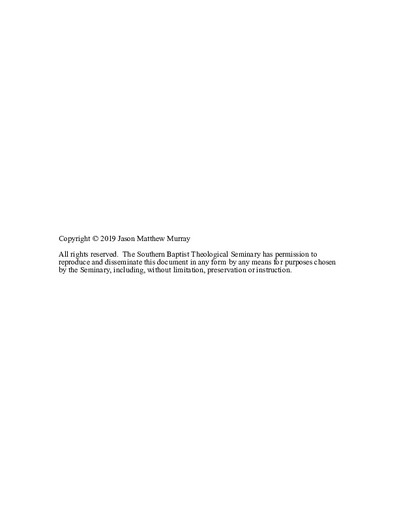Campbell and “Expository Apologetics”: Presuppositionalism Critiques Campbell’s “Original Gospel”
Subject
Campbell, Alexander, 1788-1866Van Til, Cornelius, 1895-1987
Apologetics--History--19th century
Restorationism
Description
D.Ed.Min., The Southern Baptist Theological Seminary, 2019
Abstract
Presuppositional apologetics has emerged in the last century as a singular yet complex answer to modern and postmodern attacks on the gospel. For Campbellite Christians who hold to evangelical confession and identity, the biblical confessions and commitments inherent to presuppositional apologetics represent both an opportunity and a challenge. Campbellites and other evangelicals have available common ground in practical presuppositionalism, but practical presuppositionalism also challenges Campbellites who may take up its philosophy and method of apologetics. This thesis offers an introductory exploration of the common ground and the challenge.
The practical presuppositionalism explored here is derived from Voddie Baucham’s Expository Apologetics, framed against Cornelius Van Til’s My Credo, with definition and context provided by John Frame’s Cornelius Van Til: An Analysis of his Thought. Elements of this practical presuppositionalism are identified, qualified, placed in parallel, and synthesized. The synthesis is then held up for comparison and contrast with relevant elements of the introduction to Alexander Campbell’s Christian System. The result is both an affirmation and a critique of the restorationist apologetic of Campbell. Presuppositionalism affirms Campbell’s commitment to the totality, priority, supremacy, and necessity of biblical thought, but challenges Campbell on his use of reason as an unqualified utility.

